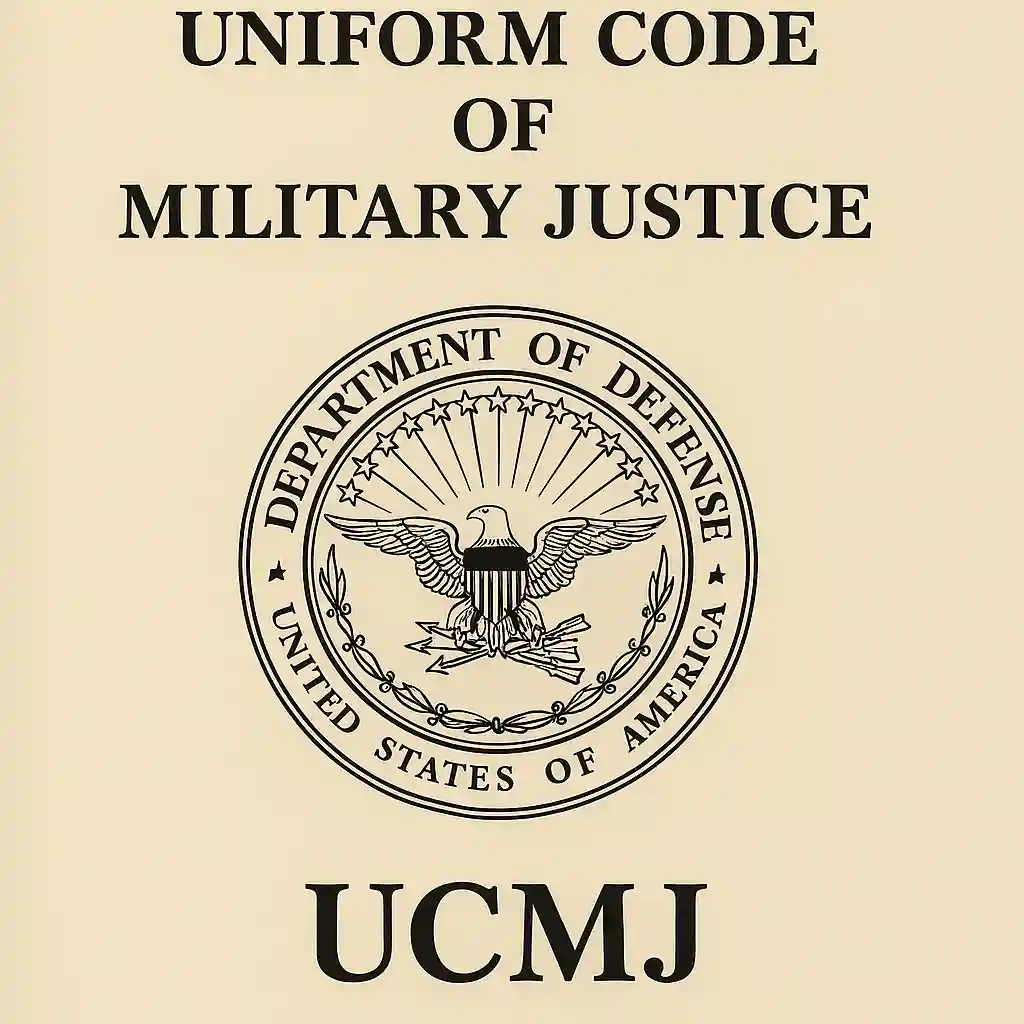
I’m a proud veteran of the United States Air Force as was most of my family. It’s basic training! Every recruit from the vary least to the greatest in rank knows and trained on following orders, even illegal orders, and the consequences of doing so. The Pete Hegseth meetings of the generals, IMHO, broke the living fuck out of article 92 receiving an ice cold response from the attendees, and more. Personally, I’m waiting on a military response. As stated before. I foresaw this coming, and said we would be in total collapse by end of summer. Here we are! Total chaos and confusion, intimidation, abuse of power, crimes against humanity. The witch is threatening to cause more pain to U.S. citizens. Closing the federal gov. Healthcare primes set to explode, massive federal employees fired or laid-off. The Witch is sounding more like the enemy within, using presidential privilege and power to harm and cause as much pain and suffering to the least of these as he possible can. May our Father in Heaven be with us. Shalom.
When Politicalizing the Military Becomes a Violation — And Why Article 92 Matters
The role of the U.S. military is, by tradition and law, to be apolitical. When military leaders appear to insert overt partisan or ideological agendas into doctrine or command guidance, the question must be asked: can that cross a legal line? Specifically, can it violate Article 92 of the Uniform Code of Military Justice (UCMJ)?
The Legal Backbone: Article 92 and Lawful Orders
Article 92 is the tool by which the military enforces obedience to lawful orders and regulations. It says, in effect:
- A service member who fails to obey lawful general orders or lawful regulations may face punishment.
- A service member who fails to obey other lawful orders likewise can be punished (unless there is lawful justification).
- Acts of dereliction (i.e., shirking or neglecting a duty) are also within its ambit, especially when tied to an order.
The “lawful” part is crucial. You cannot be punished under Article 92 for refusing an unlawful order; nor can you hide behind “I was just following orders” if the order is manifestly illegal (e.g. ordering war crimes). The law of war, U.S. statutes, constitutional limits, and military regulations define those boundaries.
So to claim that politicalizing the military violates Article 92, one must show: (1) there is a regulation or order forbidding partisan political guidance or actions; (2) that regulation is lawful; (3) the directive from leadership intersects that prohibition in a way that is sufficiently clear or manifest; and (4) subordinates either obeyed or were ordered to obey something contrary to that prohibition.
The Rules on Political Activity — DoD Directive 1344.10
To understand whether politicalizing a military meeting could cross the line, one must examine DoD Directive 1344.10, which governs what service members may and may not do in the political arena. That directive is widely understood to have the force of a lawful general regulation, violations of which can be enforced under Article 92. (WHS ESD)
Below are several key passages — verbatim — to illustrate how DoD frames permissible versus prohibited political behavior.
Selected Excerpts from DoD Directive 1344.10
(Emphasis and formatting preserved as in the official text.) (WHS ESD)
4.1.1. Permissible Political Activities.
“Members of the Armed Forces who are on active duty may:
(a) Register, vote, and express opinions on political candidates, public issues, and referendums.
(b) Encourage family members, peers, and fellow members of the Armed Forces to register and vote.
(c) Write letters to newspapers or blogs (including on the Internet) expressing their personal views on political subjects, including candidates, as long as (1) they do so as private citizens, (2) they do not wear their uniform while doing so, and (3) they do not use their official titles.
(d) Attend political events or meetings as a spectator (not as a speaker), when not in uniform.
(e) Contribute money to political funds, and make other monetary contributions, so long as they do not solicit contributions.
(f) Join a political club (even a partisan one) and attend its meetings, so long as they do so as private citizens and not in uniform.
(g) Sign nominating petitions for candidates and public office.
(h) Serve in a nonpartisan local office (if allowed by law).”
4.1.2. Prohibited Political Activities.
“Members on active duty may not:
(a) Participate in partisan political fund-raising, management, or campaigns, or become a candidate for public office in a federal, state, or local election (unless otherwise permitted by statute or Secretary concerned).
(b) Use their official authority or influence for the purpose of interfering with or affecting the result of an election.
(c) Make public speeches in support of or opposition to a political candidate or partisan political party.
(d) Participate in partisan political gatherings.
(e) Endorse or oppose a candidate for public office.
(f) Attend political fund-raising functions as speakers or in their official capacities.
(g) Display partisan political signs, banners, or posters on military property, installations, or within their offices.
(h) Use DoD or service facilities or resources (personnel, equipment, communications) for partisan political activity.
(i) Engage in political activity while in uniform or when doing so might imply DoD endorsement.
(j) Solicit votes or contributions from subordinates or direct others to do so.”
4.1.5. “Catch-All” Provision.
“Any activity that may be reasonably viewed as directly or indirectly associating the Department of Defense … with a partisan political activity or is otherwise contrary to the spirit or intention of this Directive shall be avoided.”
4.2. Nominees or Candidates.
“A retired regular member or Reserve Component member on active duty under a call or order to active duty for 270 days or fewer may remain or become a nominee or candidate… provided there is no interference with the performance of military duty.”
(Further paragraphs in section 4.2 expand limits on how campaign materials may present military affiliation.)
4.3. Additional Limitations on Campaigning.
Among other constraints, the directive prohibits non-active duty candidates from using photographs in uniform as the primary image in campaign media and requires disclaimers such as:“Use of his military rank, job titles, and photographs in uniform does not imply endorsement by the Department of Defense or their particular Military Department …”
Why Politicalizing a Meeting Might Violate the Rules
Given the directive above, here is how a meeting with generals (or other military leaders) that takes on overt political tone or direction could run afoul of the rules:
- If the content or tone of the meeting amounts to political campaigning, ideological advocacy, or partisan messaging, that is akin to “public speech in support of or opposition to a candidate or partisan political party” — prohibited under § 4.1.2(c).
- If rank or authority is used to pressure or direct subordinates to adopt political stances or actions, that may count as using “official authority or influence … for the purpose of affecting the result of an election” (§ 4.1.2(b)).
- If the meeting uses DoD resources, facilities, communications channels, personnel to organize or stage partisan content, that violates § 4.1.2(h).
- If participants are implicitly or explicitly instructed to disobey or override lawful military policy in favor of ideological positions, then you approach the boundary of unlawful orders under Article 92.
- The “catch-all” § 4.1.5 means even subtle associations or appearances of official endorsement must be avoided: if a meeting reasonably suggests that DoD or the military leadership is endorsing a political viewpoint, that could violate the intent of the directive.
If such a meeting is clearly partisan in nature and falls into those buckets, someone ordered to attend or enforce such direction might face exposure under Article 92 for obeying a regulation violation. Subordinates might have (or should have) grounds to refuse an order that is manifestly in tension with DoD’s own political activity rules.
The Tension: Leadership Direction vs. Apolitical Constraint
In practice, there is a delicate tension:
- Leaders do have latitude to shape doctrine, culture, morale, training, policy, and standards — even when those overlap with ideological or social issues. That does not inherently make their direction partisan or unlawful.
- The key legal test is whether the directive crosses from leadership into political advocacy or partisan influence, in a way that violates DoD policy.
- If it does, the directive may be unlawful, and compliance could open vulnerability under Article 92.
Thus, to claim a meeting of generals with explicit political messaging was illegal, one must show it exceeded the permissible bounds laid out in 1344.10 — and that it was sufficiently clear so that participants should have recognized the violation.
Discover more from Master Yahshua Messiah
Subscribe to get the latest posts sent to your email.

